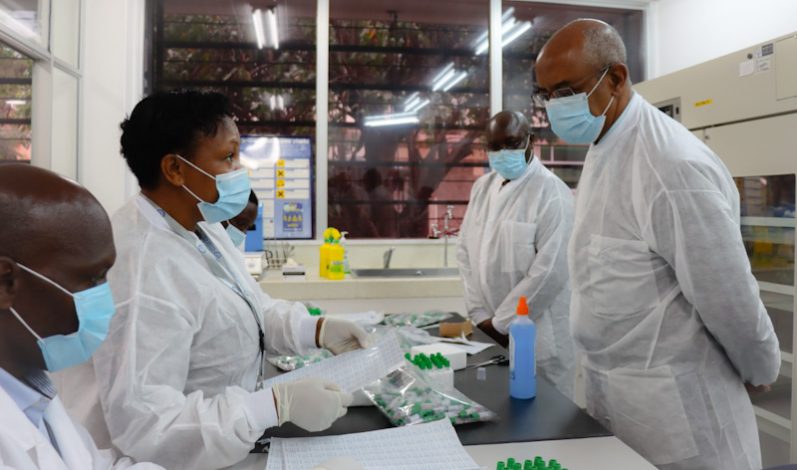Kenya’s coronavirus positivity rate stands at 14.9 per cent from a high of 22 per cent two weeks ago, the Health Ministry said Thursday.
According to the ministry, the country has registered 143,063 COVID-19 positive cases from 1,542,088 cumulative samples tested since March last year.
The Ministry noted that confirmed positive cases stand at 143,063 with Nairobi city leading as the most affected county in terms of the positivity rate.
Kenya’s cumulative recoveries surged to 97,650 after 456 patients were reported to have recovered from the disease.
Persons aged over 60 years old account for the highest death rate at 1,089.
“Cumulative deaths by age was as follows; 0-9 years (45), 10-19 years (17), 20-29 (94), 30-39 years (205), 40-49 years (322), 50-59 years (520), 60 years and above (1,089),” according to the ministry’s data.
The ministry said a total of 378,363 people had been vaccinated with the Astrazeneca vaccine by end of Wednesday.
From this, 104,726 are health workers; 30,821 are security officers; 52,420 are teachers, and 190,396 are other members of the public who include those at 58 years and above. In terms of gender, 213,971 (57%) are males and 164,392 (43%) are females.
READ
“The optimistic trend that we are seeing in the recent few days is of lowering positivity rates from real-time COVID-19 PCR lab test results unlike past few weeks when it was on the upsurge. Hopefully, this is expected to reflect in the national tally announced by MOH Chart with a downwards trend,” Dr Ahmed Yakub Kalebi, Founder and outgoing Group Managing Director, CEO & Chief Consultant Pathologist at Lancet Group of Laboratories East Africa said via his Twitter feed.
Better days lie ahead with the number of new cases and positivity rates expected to go down based on current data emerging from ongoing lab tests 📉 https://t.co/THBMrCBpWt
— 𝗗𝗿 𝗔𝗵𝗺𝗲𝗱 𝗞𝗮𝗹𝗲𝗯𝗶, 𝕆𝔾𝕎 (@DrAhmedKalebi) April 8, 2021
Sadly, across Africa, less than 2 per cent of the world’s COVID-19 vaccines administered.
“Although progress is being made, many African countries have barely moved beyond the starting line. Limited stocks and supply bottlenecks are putting COVID-19 vaccines out of reach of many people in this region,” said Dr Matshidiso Moeti, the World Health Organization (WHO) Regional Director for Africa. “Fair access to vaccines must be a reality if we are to collectively make a dent on this pandemic.”




